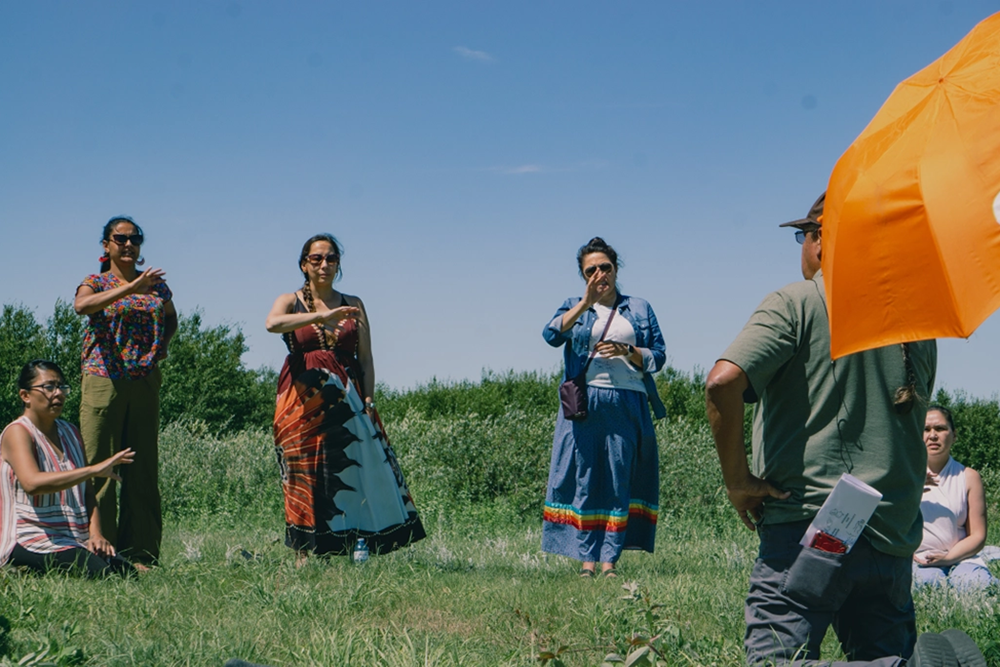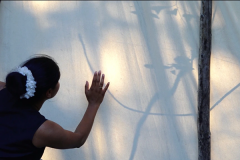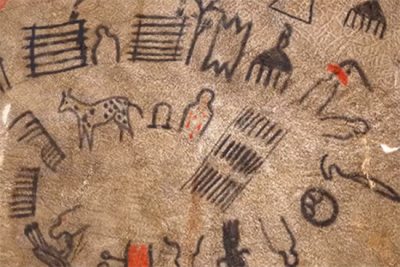The Ānako Indigenous Research Institute hosted a Research Talks on March 27, 2023 with Visiting Scholar Floyd Favel titled “Storytelling; Towards an Indigenous Performance Process.” Favel used performance, storytelling, poetry and video to explore his topic of research.
The research talk was hosted virtually through Zoom and was moderated by Ānako Research Facilitator Naomi Bird.
“Theatre is a colonial art form. It’s not from here, from this country, it came from across the big water,” said Favel.
Favel shared that the Canadian context was different when he started his studies. He talked about emerging from a country that hid its oppression of Indigenous peoples. Favel applied to theatre programs in Canadian institutions but was not accepted because of his Indigenous identity, accent, visual identity and geographic remoteness. Instead, he said he had no option but to travel abroad to continue his training.
“If I could silence my nostalgia, I would have never returned, but here I am in the prison of my country,” said Favel.

Performers at the Poundmaker Indigenous Performance Festival in 2022. (Source: Miyawata Culture Inc.)
Favel studied theatre internationally in Denmark and Italy, and it was during his time away from Canada that he chose to dedicate his studies to the development of a performance process built from Indigenous ceremony and storytelling. Favel said he was inspired by Tadashi Suzuki in Toga, Japan, who challenged theatre performed in the typical colonial manner and created a theatre method based on pre-colonial Japanese performance and movement. Favel said he could apply a similar practice to create an Indigenous performance process using storytelling as the foundation.
Every nation, Favel said, has their own image and narrative processes, but for his research, Favel chose to focus on two Indigenous storytelling structures to derive a theatre process through their framework.

Dancer performing at the Poundmaker Indigenous Performance Festival in 2022. (Source: Miyawata Culture Inc.)
Plains Indian Sign Language (PISL) is a gesture-based language that was once used across Turtle Island to facilitate communication between different language communities but is now endangered.
“There is something inside [PISL] that we can use for future generations,” Favel said. “It was a hidden and dying language, not only that, not only to revive it, but to be used in the development of Indigenous performance method.”
PISL plays an important role in Favel’s research as well as in the annual Poundmaker Indigenous Performance Festival directed by Favel. Attendees can learn up to 100 words and phrases of PISL during the workshops.
Favel’s students at Carleton (Indigenous Storytelling as Research Methodology [CDNS 5003 B/INDG 4901 B]) have also been learning PISL and exploring how it can aid in the creation of Indigenous theatre practices. In his presentation, Favel shows a video example of a student project using gesture and movement in their performance.

This Lakota calendar, or winter count, displays pictographs of key events from the years. (Source: Bullock Museum)
Favel is also looking at Waniyetu Wowapi, or winter count, for another form of Indigenous performance methodology. Waniyetu wowapi is a Lakota storytelling practice used to document time through pictographs.
PISL and Winter Count are Indigenous systems, created for and by Indigenous people, that can be starting points to understanding Indigenous theatre processes and methods, Favel said.
Favel said everything he teaches is derived from Indigenous systems and methods. Indigenous performance, said Favel, has its own body of knowledge and practices that are open to everyone and not defined by colonial identity.
To learn more, watch the recording of Floyd Favel’s research talk below and visit his website to learn more about the Poundmaker Indigenous Performance Festival: